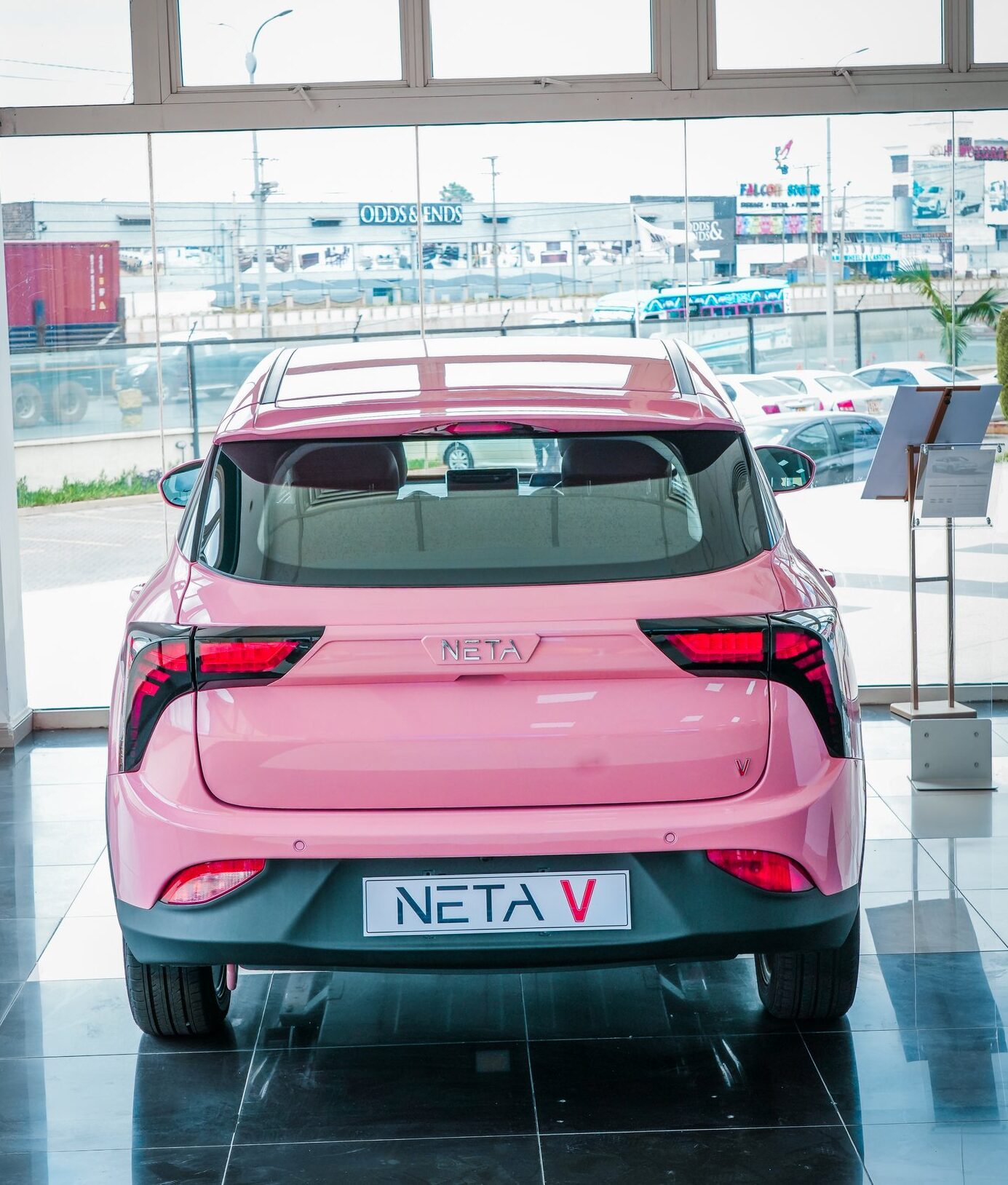
Sign up for daily news updates from CleanTechnica on email. Or follow us on Google News!
The Los Angeles Times published two articles on December 29, 2024, one defending government incentives for electric cars and trucks and the other dismissing them as wasteful. Clearly, those two points of view cannot be easily reconciled. So we thought we would present both arguments to our readers and let them decide which view of EV incentives is correct.
The Case For EV Incentives
For those living under a rock, the incoming administration has said it intends to revoke most if not all the federal tax incentives contained in the Inflation Reduction Act, including the $7500 EV tax credit for those who purchase or lease an electric car. In addition, there are other significant incentives for domestically produced materials and components for EV batteries. The LA Times Editorial Board leads off this debate with five reasons it says support keeping the current EV incentives in effect.
The editorial says EV sales are increasing worldwide, but most Americans need help affording plug-in vehicles because they still cost more than conventional cars and trucks. The $7,500 federal credit is doing what it is supposed to do, the editors said, by making EVs more affordable. Consumers saved over $600 million in just the first three months of 2024, an average of $6,900 per vehicle, according to the Treasury Department. Electric cars shouldn’t be a luxury available only to the wealthy. Keeping the tax credit in place will help these clean, low maintenance vehicles get within reach of more American families.
The LA Times points out that the tax credit didn’t used to be such a partisan issue. The first credit of $3,400 was established in 2005 by George W. Bush to encourage the purchase of a fuel efficient hybrid vehicle. In 2008 Bush signed legislation that applied it to plug-in vehicles. It was later increased to $7,500 but was limited to the first 200,000 electric cars from each manufacturer. It continued under both Obama and Trump, saving consumers and businesses about $5 billion. Continuing it will save consumers money while helping support good paying American auto industry jobs, the Times says.
“The auto industry is a cornerstone of the U.S. economy, providing more than 1 million jobs, and its strength is increasingly dependent on its success in making the global transition from its gas-fueled past to an electric-powered future,” the editorial board wrote. “The US auto industry wants to keep the consumer EV tax credit, and automakers don’t want the incoming Trump administration to scrap federal rules requiring them to sell more EVs. They have understandably cited the need for stability and predictability for the industry, as well as a desire to remain competitive and recoup hundreds of billions of investment in the transition to EVs. Ending the EV tax credit would hurt American manufacturing. When the credit was expanded under the Inflation Reduction Act, new rules were also added to restrict eligibility to vehicles that are assembled in North America and meet other restrictions on the sourcing of battery parts and crucial minerals. The aim was to encourage domestic production and reduce the supply chain’s dependence on China. This is no time to halt policies that give American workers a shot at a better future.”
The LA Times board pointed out that China and Europe are not slowing their support of electric cars and trucks. If the US does, it risks becoming less competitive and making the country more dependent on fossil fuels. Those ideas should be intuitively obvious to the most casual observer. How can anyone justify a mode of transportation that wastes more then 70 percent of the energy available in a gallon of gasoline or diesel? But the majority of people think being so profligate with precious resources is making America great again. Go figure!
“The most important reason for keeping the tax credit is that it helps the transition to pollution free vehicles. Transportation is the nation’s largest source of planet warming pollution, and we can’t effectively fight climate change without slashing emissions that are causing storms, wildfires, heat waves and droughts to worsen. Even Trump — who has dismissed global warming as a ‘hoax’ and attacked EVs by stoking baseless consumer fears during his campaign — should be able to see that the future is electric and that American businesses, consumers, and workers can either stake out a place in that future or be left behind,” the LA Times editorial board wrote in conclusion.
The Case Against EV Incentives
Veronique de Rugy, a senior research fellow at the Mercatus Center at George Mason University, penned an op-ed that was published by the Los Angeles Times the same day. She began by saying those incentives are ineffective at shaping behavior and primarily benefit the wealthy while needlessly adding to the deficit. “EVs aren’t even good at curbing climate change, and the credit could be stifling better alternatives,” she wrote.
To date, she said, those incentives have cost the federal government $112 billion in lost revenue. To make matters worse, the EV credits are part of an industrial policy package of energy tax credits, mandates, and “buy American” requirements under the IRA that will cost more than $1 trillion over 10 years. That will make the federal deficit greater than it already is. By golly, let’s not allow any “buy American” policies that distort international trade!
De Rugy conveniently omits any reference to the Trump tax cuts for the wealthy and corporations that are due to expire this year. If renewed, they will blow a hole in the federal budget that our great grandchildren will be paying off decades from now. A quick Google search (powered by AI) turned up this bit of information. “The Mercatus Center receives funding from many foundations that support conservative causes, including the Charles G. Koch Foundation, the David H. Koch Foundation, the John Templeton Foundation, and the Bradley Foundation.”
“Beyond the price tag that burdens taxpayers, the credit is unfair to the vast majority, who, being less well off than EV purchasers, drive relatively affordable gasoline powered vehicles and do not reap any financial benefit from the credit.” To prove her point, she relies on a report by the Congressional Research Service which found that in 2021, taxpayers with adjusted gross income greater than $100,000 represented 22% of all filers and received 84% of the credit benefits. CleanTechnica readers may judge for themselves how the market for electric cars has changed since 2021. Her analysis also conveniently overlooks that what was once an income tax credit is now a point of sale rebate. How odd that she and her Koch funded ilk are fierce opponents of the school lunch program but vitally concerned with whether low income families can afford to buy a new car.
She references a recent study by five unnamed economists that found “75% of the EV subsidies claimed under the IRA have gone to consumers who would have bought an electric vehicle anyway.” According to their calculation, she says, each car sold due to the incentives (roughly 25% of the total number of vehicles sold) came at a cost to taxpayers of $32,000. “The credit’s inability to attract those who would prefer to purchase a gas vehicle is a clear sign of its failure, which explains the need to impose even more authoritarian measures like EV-related mandates.” Ah, the Kochtocracy rears it ugly head. There is no EV mandate except within the brains of those who rely on Charles Koch for their paycheck. But a lie repeated often enough becomes the truth, which is how we got to Trump 2.0.
Next, it’s time to bash efforts to respond to an overheating planet. “To those who believe that the cost and disparity in our tax code are worthwhile because we must fight climate change, I have news for you. First, the environmental benefits of the credit are unclear. EVs are not emission-free when considering the carbon footprint of battery production and electricity generation. Also, EVs primarily replace the purchase of newer gas vehicles, which pollute less than the older vehicles that remain on the road. Combined with the fact that many tax credit recipients would have purchased an EV anyway, it’s unlikely that there’s much environmental bang for the buck.”
Here again, de Rugy conveniently overlooks the fact that the incoming administration is determined to roll back exhaust emissions standards so new cars will actually get worse fuel economy than cars today, but in her world there is no room for reality. Only firmly held beliefs are worthy of notice. Now it’s time for the “winners and losers” ploy so near and dear to the hearts of new age conservatives. Right on cue, de Rugy says, “The cost of the government picking winners compounds this problem. There is little reason to believe that the technological path that government officials happen to prefer is the optimum one and the danger is that tax credits are creating market distortions that crowd out better solutions.
“By artificially propping up EV manufacturers and steering consumers toward one specific technology, other — perhaps better — technologies can be thwarted. Hybrids, plug-in hybrids, hydrogen fuel cell cars, alternative fuels or other emerging innovations are penalized despite their important role in addressing environmental and energy challenges. Each deserves equal footing to determine which can deliver more effective environmental benefits, lower costs or both. Yet, instead of fostering open competition and letting the best solutions reveal themselves or allowing different technologies to serve different customer needs, the tax credit creates winners and losers based on political priorities.” Last time we checked, plug-in hybrids and fuel cell powered vehicles were absolutely covered by the IRA incentives, and there are extensive incentives for alternative fuels included in the IRA as well. Perhaps de Rugy didn’t have time to read up about them.
Her Conclusion
“It’s high time this policy goes away,” de Rugy wrote. “The federal EV tax credit is an inefficient, regressive program that benefits the wealthy at the expense of average Americans. Eliminating it would restore fairness, reduce government interference in the market and, through genuine competition, better allow resources to go toward initiatives that enable as many people as possible to purchase cleaner vehicles. There are far more effective ways to design policies to address climate change. The best is to unleash capital to fund as many green and innovative projects as possible by reducing taxes on capital gains and renewing the ability to immediately deduct 100% of capital investments. Projects like solar farms, wind turbines and grid infrastructure require massive upfront capital investments. Without full expensing, these costs must be depreciated over many years, reducing the present value of tax benefits.
“In addition, better cash flows in the early years make it easier to secure financing. There is also a timing issue. The clean energy transition requires rapid deployment of new technologies. Full expensing encourages companies to accelerate investments rather than delay them. The federal government also should lift the permitting barriers that bureaucrats have erected that make building and innovating harder than they should be.” Is de Rugy suggesting local opposition to solar, wind, and transmission lines should be disregarded. We doubt it.
The Takeaway
We will be the first to admit that there can and should be a full and frank discussion about what are the most efficient and effective ways to foster cleaner transportation technology. But when we hear talk of reducing taxes on corporations and the wonders of trickle-down economics — which have done nothing in 30 years except decimate the middle class while transferring trillions of dollars and wealth upwards to America’s 804 billionaires while exploding the national debt — we get a little skeptical of the bona fides of the author. Readers will probably have a few thoughts of their own about how to promote more sustainable transportation. If so, we can’t wait to hear them!

Chip in a few dollars a month to help support independent cleantech coverage that helps to accelerate the cleantech revolution!
Have a tip for CleanTechnica? Want to advertise? Want to suggest a guest for our CleanTech Talk podcast? Contact us here.
Sign up for our daily newsletter for 15 new cleantech stories a day. Or sign up for our weekly one if daily is too frequent.
CleanTechnica uses affiliate links. See our policy here.
CleanTechnica’s Comment Policy




